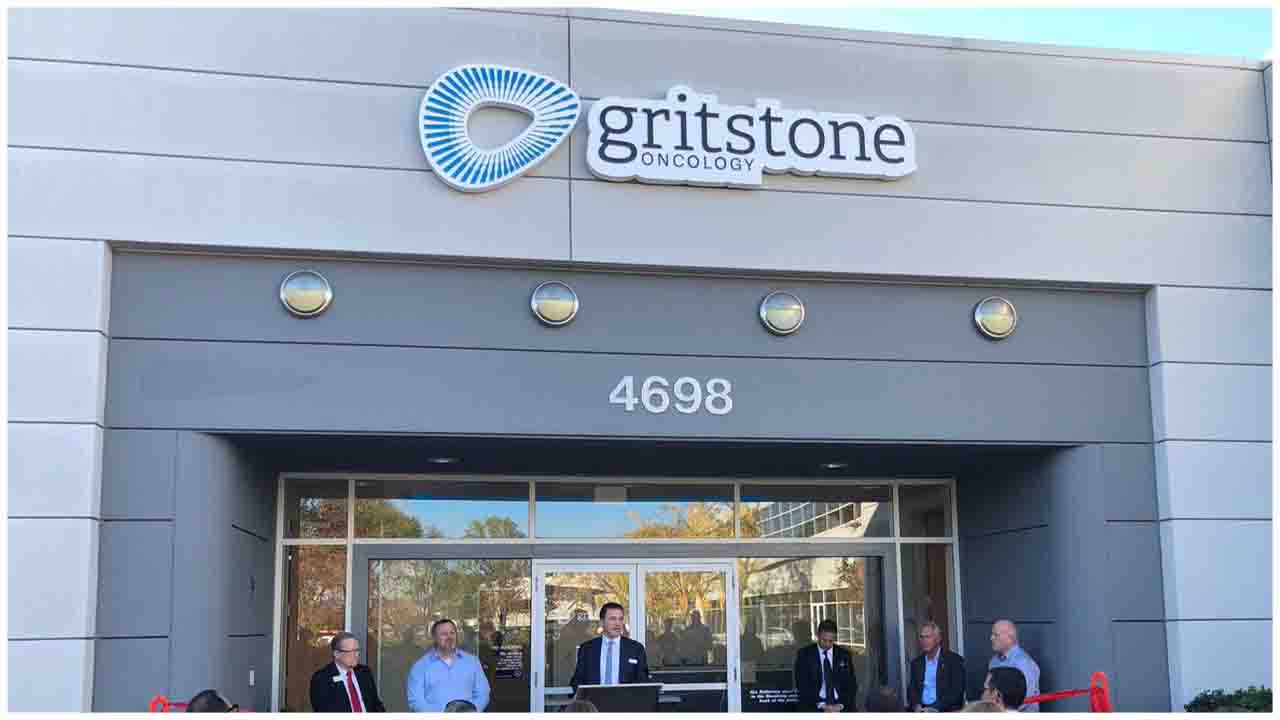Gritstone Oncology, Inc., a clinical-stage biotechnology company developing the next generation of cancer immunotherapies to fight multiple cancer types, today announced that it has begun dosing patients in the Phase 2 expansion cohorts of the Phase 1/2 clinical studies for GRANITE and SLATE, its neoantigen-based immunotherapies.
“We are excited to advance the highest doses of GRANITE and SLATE tested in the Phase 1 studies into Phase 2 clinical cohorts and interrogate the ability of our immunotherapies at full dose to elicit robust immune responses against historically cold (or non-immunogenic) tumor types such as metastatic colorectal cancer,” said Andrew Allen, M.D., Ph.D., co-founder, president and chief executive officer of Gritstone Oncology. “We have seen promising data in our Phase 1 study, which is still ongoing, including in gastro-esophageal and colorectal cancers, and we look forward to presenting the full dataset by mid-2021. Additionally, we continue to remain highly interested in the adjuvant setting where immunotherapy is likely to have the greatest impact and where diagnostic blood tests such as circulating tumor DNA (ctDNA) can be employed to run efficient trials in patients in need.”
Daniel Catenacci, M.D., director of the Gastrointestinal Oncology Program at the University of Chicago Medicine and principal investigator on the studies, added, “The early Phase 1 data clearly show robust induction of neoantigen-specific CD8+ T cells, expansion of those cells in the tumour microenvironment, and early evidence of benefit to our patients. Delivering effective immunotherapy to patients with cold tumors would change the landscape of cancer treatment and expand the role of immunotherapy significantly.”
The Phase 2 portion of the GRANITE Phase 1/2 study (GO-004) includes a cohort for patients with microsatellite stable colorectal cancer (MSS CRC) who have progressed on FOLFOX/FOLFIRI therapy and a second cohort for patients with gastro-esophageal cancer (GEA) who have progressed on chemotherapy. GRANITE was granted Fast Track designation by the U.S. Food and Drug Administration for the treatment of MSS CRC.
In the Phase 2 part of the SLATE Phase 1/2 study (GO-005), the company has begun enrolling non-small cell lung cancer patients with relevant KRAS mutations who have progressed on prior immunotherapy, and patients with tumours where a relevant TP53 mutation exists.
Raphaël Rousseau, M.D., Ph.D., executive vice president and chief medical officer of Gritstone Oncology, added, “These expansion cohorts are designed to rapidly and unambiguously identify efficacy signals by studying patients in whom checkpoint inhibitor therapy is essentially inactive (MSS CRC) or has low activity (GEA). Furthermore, and related to the low activity of immunotherapy observed to date, patients with metastatic colorectal or gastro-esophageal cancers have poor prognoses, with estimated 12-month survival figures of only 56% and 30% respectively (SEER18 data). Registrational studies in these contexts can be consequently fast, particularly if observed treatment effects are strong.”
Gritstone’s neoantigen-based immunotherapies are engineered to elicit a significant T-cell response (particularly CD8+ cytotoxic T cells) against mutation-derived tumour-specific neoantigens, or TSNA, that are identified by the company using its proprietary Gritstone EDGETM artificial intelligence platform and tumor HLA peptide sequencing. Data demonstrating the neoantigen identification capabilities of EDGE were published in Nature Biotechnology.
GRANITE is Gritstone’s personalized immunotherapy that consists of two components: first, a priming adenoviral vector is used to deliver a cassette of 20 patient-specific TSNA derived from the patient’s own tumour; and second, the same personalized TSNA cassette is delivered using a self-amplifying RNA vector in a repeated boost sequence. GRANITE is being evaluated in combination with immune checkpoint blockade in a Phase 1/2 clinical study, referred to as GO-004. GRANITE was granted Fast Track designation by the U.S. Food and Drug Administration for the treatment of MSS CRC.
SLATE is Gritstone’s “off-the-shelf” immunotherapy. It uses the priming adenoviral vector and self-amplifying RNA vector to deliver a cassette of 20 shared TSNA, representing mutated gene sequences that are shared across patients (such as TP53 and K-RAS mutations). SLATE is being evaluated in combination with immune checkpoint blockade in a Phase 1/2 clinical study called GO-005.

 Gritstone Oncology advances into phase 2 expansion cohorts for its personalized neoantigen immunotherapy GRANITE and its off-the-shelf neoantigen immunotherapy SLATE
Gritstone Oncology advances into phase 2 expansion cohorts for its personalized neoantigen immunotherapy GRANITE and its off-the-shelf neoantigen immunotherapy SLATE











.jpeg)

.jpeg)










.jpg)




.jpg)

